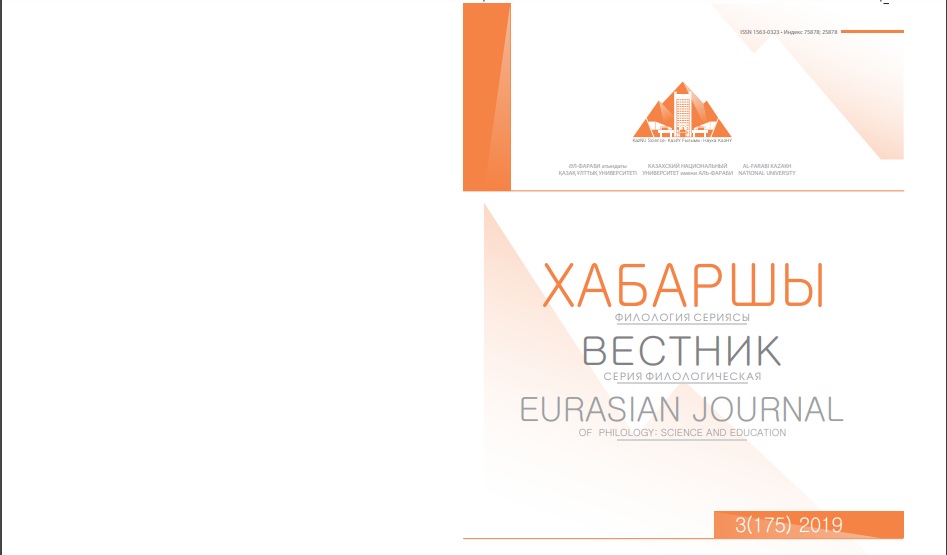Актерское искусство в прикладных целях лингвистики
DOI:
https://doi.org/10.26577/EJPh-2019-4-ph27Abstract
There are many works proposing to see the theory of theatre and apply director’s ideas on
classes of different subjects in schools. The task of the linguist, engaged with foreign students of Kazakh
and Russian languages at the initial stage of training, is to transform the platform at the board into a creative laboratory for revitalization and activation of work in the language group.
It is no secret that students always need genuine, live, inadvertently expressive reactions of the
teacher leading the class, so the teacher is the creator of the lesson, his director and his main “positive”
hero.
The teacher’s professional behavior in non-native language classes for beginners should include
behavioral recommendations offered by theatre theorists. The idea was put forward that many specific
theatrical exercises may well be adapted to school conditions, to the conditions of practical university
classes in languages. The search and development of forms of submission, carrying out and evaluation
of various exercises used in professional acting school has begun. It remains to be understood that in the
behavior of the teacher it is necessary to change so that in the eyes of students to become to whom they
would sympathize, charged from him by faith in overcoming difficulties and in progress in learning the
non-native language. In order to achieve this and use the behavioral secrets of charming, sympathetic,
all around “charging” teachers, it is necessary to listen to the advice of famous scientists who deal with
the problems of theatre pedagogy. In this case, the experienced teacher will empirical calculate the need
to use a director’s method corresponding to the current moment.






